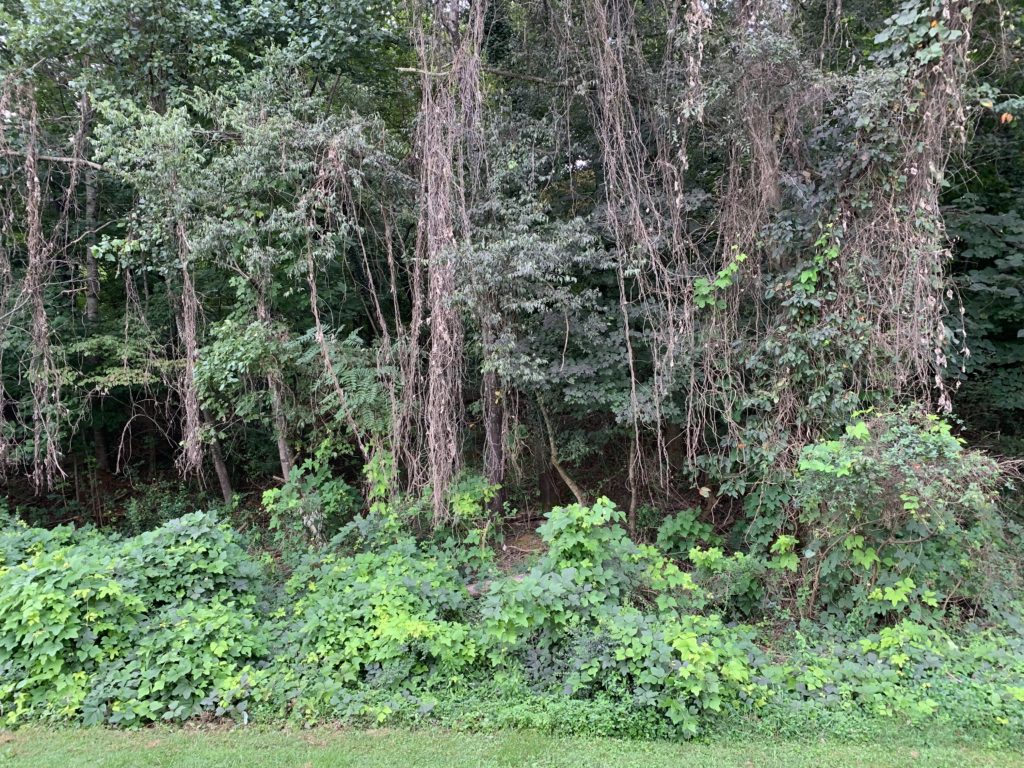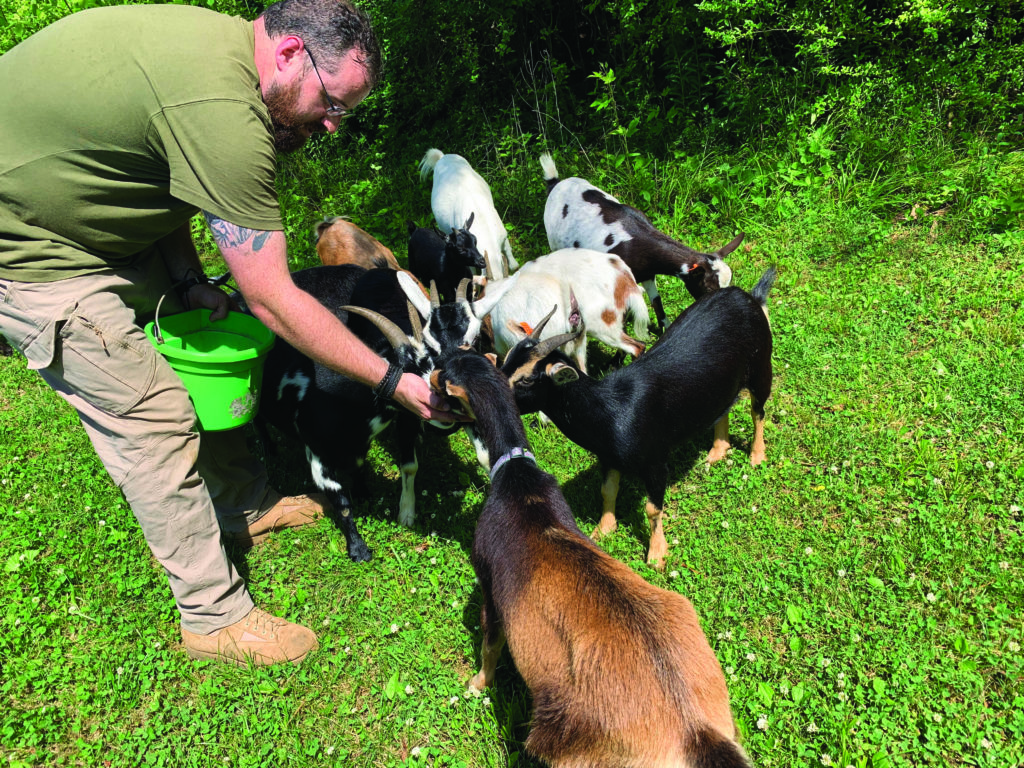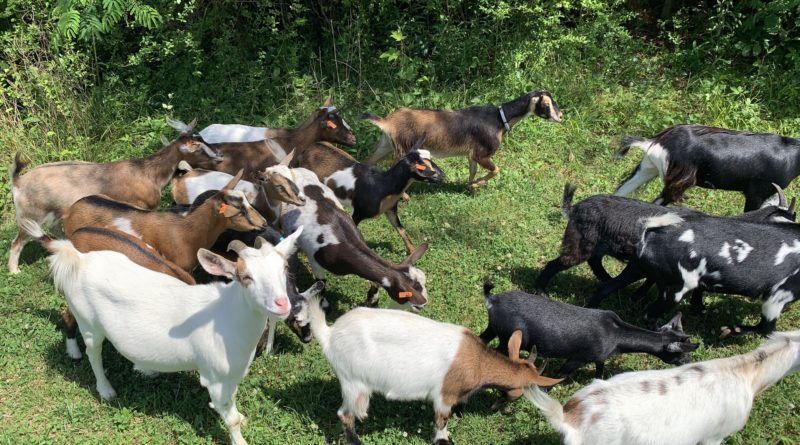Goats kill kudzu in MC Woods
A team of local goats killed a large portion of kudzu from the Maryville College Woods this summer, but the invasive plant is already making its way back in our woods.
The Maryville College Woods Group is responsible for stewardship of the Maryville College Woods, and they have been in the process of removing invasive species. Dr. Drew Crain, the Chairman of the Woods Group, leads the invasive plant removal strategy.
Brice Guillaume, a part of the Maryville College Woods Group and Mountain Challenge, said the partnership with Knox Goats is “for sure good for the woods, but it’s also what goats eat. No goat was harmed in the making of this project.”
The Woods Group is dedicated to finding environmentally friendly ways of removing invasive species from the woods. The purpose of all their effort is for the native species to flourish, which could not be accomplished with harmful treatments.
The Woods Group came up with the management strategy of hiring Knox Goats to bring out a portion of their team of goats to gradually graze the invasive species. By periodically moving an electric fence along the edge of the woods, the goats were able to kill large expanses of kudzu in the time they were here.
The goats were herded by a large white dog named Casper, which made sure that visitors were aware of the electric fence and kept the goats in check. A Maryville College staff member made sure the dog was fed and watered each day.
There was also a trailer that allowed the goats to have shelter, food, and water constantly. During the first few weeks the goats were here, Crain discovered they were “extremely adverse” to rain and didn’t get much done.

Photo by Chloe Lewis.
However, over the few months they were here, they made amazing progress. Kudzu high up into the trees can be seen brown and dead because of the first grazing. Although the goats did an incredible job, kudzu is already growing back with ferocity. Crain recognizes the “aggressive nature” of kudzu and is planning a future grazing when the goats are available in the fall.
“You can’t just do it one time; you’ve got to do multiple grazings,” Crain said.
Guillaume explained that fully removing kudzu requires several grazings to break down the kudzu’s strength and root system. When the kudzu is removed from the trees, this allows them to receive more sunlight, according to Crain.
The massive project started with tackling other invasive species occupying the interior of our woods. The English ivy was removed first, which likes shaded areas inside the woods, and then they moved to the Chinese privet, which grows in large bushes inside the woods. By removing these plants, Crain and his team were able to plant beautiful native plants in place of them, which we can see in our woods today.

Photo Courtesy of MC Marketing and Communications.
Once those two were handled, they were able to focus on the removal of the kudzu, which grows along the edge of the woods in the sunlight and heat—perfect for goats. “All along the woods, all the way from [the pavilion] to the lower orchard—everything that was exposed to sun—we had a tremendous kudzu problem,” said Crain.
The fight against invasive species in our woods is never over. Crain organizes occasional volunteer opportunities for those who want to help keep internal invasive species at bay (mainly Chinese privet). The goats will also be back for future grazings over the next year. Keep an eye out on Today@MC for his next project, and take walks in the woods to catch the herd while they’re here.

